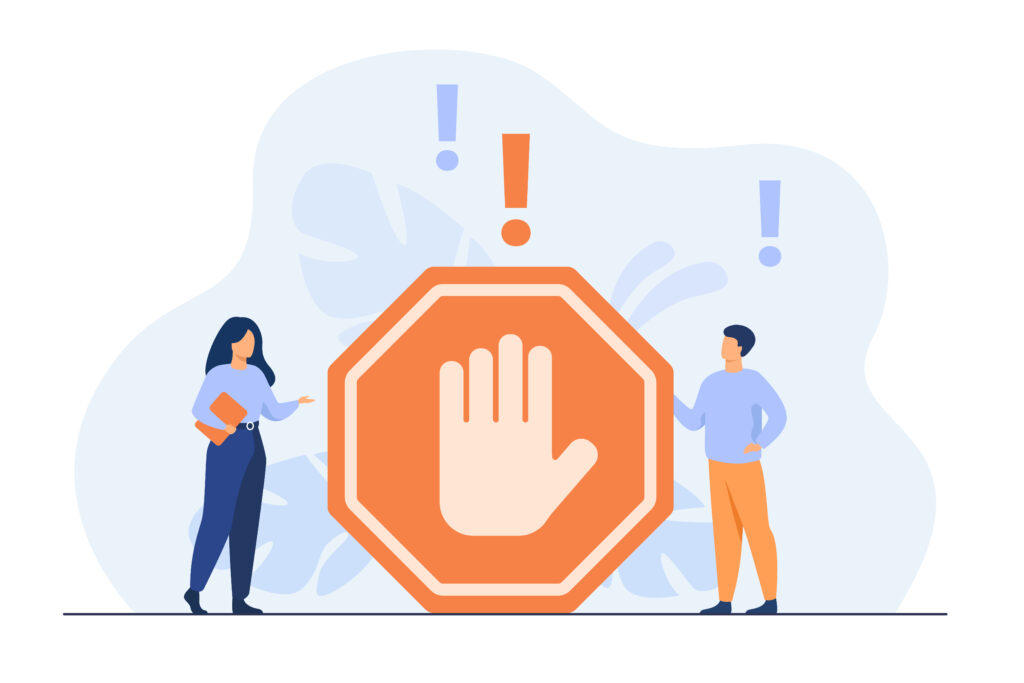Last updated on December 20th, 2024 at 01:46 pm
Developing healthy and respectful interactions with others is crucial for building successful relationships and fostering a positive social environment. In any interaction, it is essential to understand and respect boundaries and consent. Remember that rejection is a normal aspect of social interactions, and it is important to learn from rejection, using it as an opportunity for self-reflection and growth, rather than concentrating on avoiding rejection at all costs.
Developing Self-Awareness and Empathy

To foster healthy and respectful interactions with others, it is crucial to have a clear understanding of your own needs, desires, and limitations. When you have a solid sense of who you are and what you want, it becomes easier to communicate that to others and comprehend their perspectives. Furthermore, actively practicing empathy enhances your ability to understand and respect the viewpoints and needs of others. This involves active listening and open communication, which are essential components of building trust and connection.
Building Trust and Connection
Authenticity, trust, and connection are essential components of building healthy relationships. By being genuine and transparent with others, you foster an environment where trust can thrive. Building trust and connection also requires mutual respect, equality, and consent in all interactions. It’s crucial to remember that everyone has different needs and boundaries, and respecting them is vital for establishing trust and connection. Additionally, it’s important to address conflicts and disagreements in a constructive manner, rather than allowing them to escalate into something larger.
Fostering Respect and Mutual Understanding
Establishing a mindset of equality and mutual understanding is essential for cultivating healthy and respectful interactions with others. Recognizing and respecting the autonomy and boundaries of individuals is vital, as it facilitates open communication and active listening. Furthermore, promoting mutual understanding necessitates confronting stereotypes, biases, and prejudices that can lead to division and disconnection. It is also important to encourage open communication and active listening while creating a safe and inclusive environment for everyone to foster respect and mutual understanding.
Trust Your Intuition
Trusting your intuition is essential when it comes to dating and relationships. It’s vital to pay attention to how you feel around a person; your instincts can reveal a great deal about whether someone is right for you. If something feels off, it’s crucial to heed that feeling and refrain from getting involved with someone who makes you uncomfortable. This could be a red flag indicating that the relationship may not be healthy or fulfilling for you.
Understand Your Deal Breakers
Having a clear understanding of your deal breakers is essential for any relationship. It’s important to know what you are and aren’t willing to accept. By clearly identifying your deal breakers, you can ensure that you are not wasting your time on someone who does not meet your standards and expectations. This awareness can also help you avoid potential conflicts or dissatisfaction in a relationship.
Practice Self-Awareness

Practicing self-awareness is essential for identifying what you want and need in a partner, as well as what you wish to avoid. Reflecting on your own values, needs, and goals can help you understand what you’re seeking in a relationship and how to recognize a suitable match. Self-awareness is an ongoing process, and it is important to continue reflecting on yourself and your needs throughout the relationship.
Be Honest with Yourself
Being honest with yourself about what you seek in a relationship is crucial. Avoid leading someone on if you’re not interested in a serious commitment. This approach will save both parties time and potential heartache. Honesty is essential for building trust and maintaining a healthy relationship.
Set boundaries: Boundaries are essential in any relationship. It is important to clearly communicate your boundaries and to respect the boundaries of others as well. This practice will help you avoid becoming involved with someone who does not respect your boundaries and will ensure that your relationship is built on mutual respect and trust.
Take your time
Rushing into a relationship can result in poor decision-making and the risk of becoming involved with the wrong person. It is essential to take your time getting to know someone before entering a relationship. This approach will allow you to better assess whether this person is a suitable match for you and if the relationship has potential for long-term compatibility.
Be open-minded
Be open-minded when it comes to dating; the right person may not come from where you expect. Being receptive to meeting individuals from diverse backgrounds and cultures can introduce you to new perspectives and experiences, thereby increasing your chances of finding a compatible partner.
Learn from Past Experiences
Reflecting on past relationships, both positive and negative, can offer valuable insights into what you appreciated and disliked in a partner, as well as what you want to avoid in the future. Use this information to make better choices moving forward and to avoid patterns that were unsuccessful for you in the past.
Conclusion
In conclusion, avoiding rejection by a girl requires attention to your own values, needs, and goals, as well as being mindful of red flags in potential partners. Trusting your intuition, knowing your deal breakers, practicing self-awareness, being honest with yourself, setting boundaries, taking your time, being open-minded, and learning from past experiences can all be beneficial in making informed decisions regarding dating and relationships.
Remember that building a successful relationship necessitates mutual respect, trust, and open communication. By being self-aware and mindful of your own needs and values, you can attract healthier and more fulfilling relationships.


